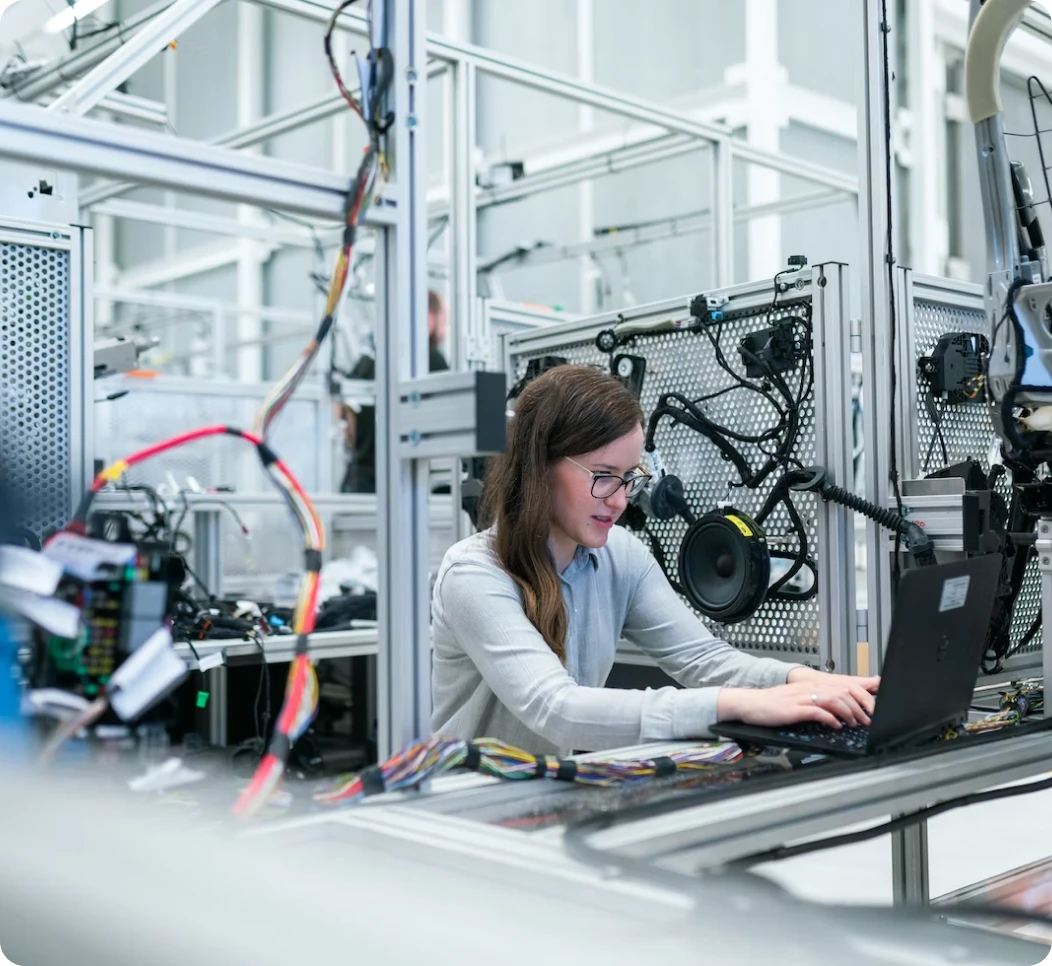
Covered Subjects & Modules
Skill Surf Global provides various subjects & modules for high school students and undergraduate students.

High School Tutoring
These are some examples of the many courses available. The specific courses offered can be tailored to your needs based on your program and institution.
Mathematics
- Algebra I: This course covers the basic principles of algebra, including linear equations, functions, and graphing.
- Geometry: This course covers the study of shapes, angles, and spatial relationships, as well as geometric proofs and constructions. This course covers more advanced algebraic concepts, such as systems
- Algebra II: f equations, matrices, and logarithmic and exponential functions.
- Pre-Calculus: This course prepares students for calculus by covering trigonometry, advanced algebraic functions, and conic sections.
- Calculus: This course covers the study of limits, derivatives, and integrals, as well as their applications to real-world problems.
- Statistics: This course covers the principles of statistical analysis, including probability, hypothesis testing, and data analysis.
Chemistry
- General Chemistry: This course covers the study of chemical properties, reactions, and structures, including topics such as atomic theory, chemical bonding, and stoichiometry.
- Honors Chemistry: This course is an advanced version of general chemistry, with a more in-depth exploration of the principles and applications of chemistry.
- AP Chemistry: This is an advanced placement course that covers college-level topics in chemistry, including chemical kinetics, thermodynamics, and organic chemistry.
Physics
- General Physics: This course covers the study of motion, forces, energy, and matter, including topics such as mechanics, waves, and optics.
- Honors Physics: This course is an advanced version of general physics, with a more in-depth exploration of the principles and applications of physics.
- AP Physics 1 and 2: These are advanced placement courses that cover college-level topics in physics, including kinematics, thermodynamics, and electromagnetism.
- AP Physics C: Mechanics: This is an advanced placement course that covers college-level topics in mechanics, including kinematics, dynamics, and conservation laws.
- AP Physics C: Electricity and Magnetism: This is an advanced placement course that covers college-level topics in electricity and magnetism, including electrostatics, circuits, and electromagnetic waves.
Computer Science
- Introduction to Programming: This course covers the fundamentals of programming, including programming languages, algorithms, and data structures.
- AP Computer Science A: This is an advanced placement course that covers college-level topics in computer science, including programming concepts, data structures, and algorithms.
- AP Computer Science Principles: This is an advanced placement course that covers the fundamental principles of computer science, including computational thinking, data analysis, and problem-solving.
Engineering
- Introduction to Engineering Design: This course introduces students to the engineering design process, including problem-solving, research, and project management.
- Principles of Engineering: This course covers the principles of engineering, including design, modeling, and problem-solving using a variety of engineering disciplines.
- Digital Electronics: This course covers the principles of digital electronics, including logic gates, circuits, and microprocessors.
- Civil Engineering and Architecture: This course covers the principles of civil engineering and architecture, including building design, materials, and construction techniques.

Undergraduate Tutoring
These are some examples of the many courses available. The specific courses offered can be tailored to your needs based on your program and institution.
Mathematics
- Calculus: This is a foundational course in mathematics that covers topics such as limits, derivatives, and integrals. Calculus is used extensively in fields such as physics, engineering, and economics.
- Linear Algebra: This course covers the algebraic properties of linear equations and vectors, and it is used extensively in fields such as computer graphics, physics, and cryptography.
- Differential Equations: This course covers the study of differential equations and their applications in fields such as physics, engineering, and biology.
- Probability and Statistics: This course covers the study of probability theory and statistical analysis, which are used in fields such as finance, economics, and data science.
- Abstract Algebra: This course covers algebraic structures such as groups, rings, and fields and is used in fields such as cryptography and coding theory.
- Real Analysis: This course covers the rigorous study of real numbers and their properties, and it is used in advanced mathematics and theoretical physics.
- Number Theory: This course covers the properties of numbers and their relationships and is used in fields such as cryptography and coding theory.
- Graph Theory: This course covers the study of graphs and their properties and is used in fields such as computer science and network analysis.
Physics
- Mechanics: This course covers the laws of motion and the dynamics of objects, including the study of forces, energy, and momentum.
- Electromagnetism: This course covers the properties of electric and magnetic fields and their interactions with charged particles and currents.
- Thermodynamics: This course covers the study of heat and temperature and their relationship to energy and work, including topics such as entropy, heat engines, and refrigeration.
- Optics: This course covers the study of light and its interactions with matter, including topics such as reflection, refraction, interference, and diffraction.
Computer Science
- Introduction to Computer Science: This course provides an introduction to computer programming and problem-solving, including topics such as algorithms, data structures, and programming languages.
- Data Structures and Algorithms: This course covers the study of algorithms and data structures, including topics such as sorting, searching, and graph algorithms.
- Database Systems: This course covers the principles of database design and management, including topics such as relational algebra, SQL, and database normalization.
- Computer Networks: This course covers the study of computer networking and communication, including topics such as TCP/IP, network protocols, and network security.
- Operating Systems: This course covers the principles of operating system design and management, including topics such as process management, memory management, and file systems.
- Artificial Intelligence: This course covers the study of intelligent agents and systems, including topics such as machine learning, natural language processing, and robotics.
- Computer Graphics: This course covers the principles of computer graphics and visualization, including topics such as rendering, modeling, and animation.
- Software Engineering: This course covers the principles of software design and development, including topics such as software testing, software architecture, and software project management.
Chemistry
- General Chemistry: This course provides an introduction to the fundamental principles of chemistry, including atomic and molecular structure, chemical bonding, stoichiometry, and thermodynamics.
- Organic Chemistry: This course covers the study of carbon-containing compounds, including their structure, properties, and reactions.
- Analytical Chemistry: This course covers the principles and techniques used to identify and quantify chemical species, including topics such as chromatography, spectroscopy, and electrochemistry.
- Physical Chemistry: This course covers the application of physics to chemical systems, including thermodynamics, quantum mechanics, and chemical kinetics.
- Biochemistry: This course covers the chemical processes that occur within living organisms, including topics such as enzymes, metabolism, and genetic material.
- Inorganic Chemistry: This course covers the study of the properties and reactions of inorganic compounds, including topics such as transition metal chemistry, coordination compounds, and solid-state chemistry.
- Polymer Chemistry: This course covers the synthesis and properties of polymers, including topics such as polymerization, characterization, and applications.
- Environmental Chemistry: This course covers the study of the chemical processes that occur in natural and engineered environments, including topics such as atmospheric chemistry, water chemistry, and pollution control.
Engineering
- Introduction to Engineering: This course provides an introduction to the fundamental principles of engineering, including topics such as problem-solving, design, and innovation.
- Statics and Dynamics This course covers the study of forces and motion, including topics such as equilibrium, kinematics, and Newton's laws of motion.
- Electrical Circuits: This course covers the principles of electric circuits, including topics such as voltage, current, resistance, and power.
- Mechanics of Materials This course covers the behavior of materials under stress and strain, including topics such as elasticity, plasticity, and fracture mechanics.
- Thermodynamics: This course covers the study of heat and temperature and their relationship to energy and work, including topics such as entropy, heat engines, and refrigeration.
- Fluid Mechanics: This course covers the study of fluids in motion, including topics such as viscosity, turbulence, and Bernoulli's principle.
- Control Systems: This course covers the principles of control theory and the design of feedback control systems, including topics such as stability, transfer functions, and PID controllers.
- Materials Science and Engineering: This course covers the study of the properties and behavior of materials, including topics such as crystal structure, phase diagrams, and mechanical properties.
Skill Surf Global areas of expertise specific to the various engineering disciplines

- Programming Languages (e.g. Java, Python, C++)
- Artificial Intelligence and Machine Learning
- Database Systems
- Computer Networks and Security
- Circuit Theory and Analysis
- Power Systems and Renewable Energy
- Control Systems
- Signals and Systems
- Electronics and Digital Systems
- Mechanics and Materials Science
- Thermodynamics and Heat Transfer
- Machine Design and Manufacturing
- Robotics and Control
- Structural Analysis and Design
- Geotechnical Engineering
- Transportation Engineering
- Environmental Engineering
- Water Resources Engineering
- Thermodynamics and Kinetics
- Process Control and Optimization
- Chemical Process Design
- Biochemical Engineering
- Nanotechnology

